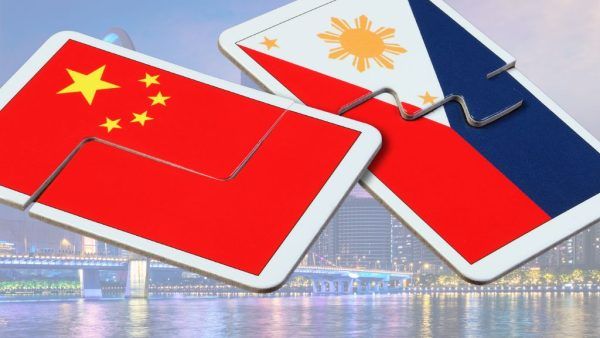In an article published in The Guardian, former NBA player Etan Thomas shares his personal account of the increasing threats college athletes face due to social media and gambling. He reflects on his own experiences as a college player in the late 1990s, contrasting it with the current scenario where young athletes must endure an onslaught of online abuse.
Thomas highlights recent incidents from the NCAA Tournaments where athletes reported receiving death threats on social media. Angel Reese, after LSU’s loss to Iowa, revealed she had been receiving such threats since winning the national title in 2023. Similarly, Gabbie Marshall of Iowa deleted her social media due to threats after drawing a game-clinching foul against UConn in the Final Four.
On the men’s side, Purdue’s Carson Barrett received a death threat on Instagram after his three-pointer affected the betting outcome of a game. This incident raises questions about whether this type of abuse and threats from fans is becoming the new norm for college athletes.
The NCAA president, Charlie Baker, in a letter to campus leaders, shared data indicating that approximately one in three high-profile athletes receive abusive messages from someone with a betting interest. The data also shows that 90 percent of this harassment is generated online or through social media, while the remaining 10 percent occurs in person, sometimes even from other students on campus.
Thomas recalls his time at Syracuse University from 1996 through 2000, a period when the internet was not as pervasive. He acknowledges that while fans were often unhappy after a loss, and players did face heckling, the scale and intensity of abuse have magnified with the rise of social media. He also notes that black players have always received a disproportionate share of abuse from mainstream America.
Quoting Juwan Howard, one of the Fab Five from the early 1990s, Thomas described the impact of social media on the backlash athletes receive. Howard recalled receiving racist and hateful letters, likening the experience to the racial integration struggles of the 1960s.
Thomas criticized the excessive access fans have to athletes through social media. He points out that in the past, fans would have to write a letter to express their anger, a process that might have given them time to reconsider their actions. However, with social media, fans can instantly direct their anger, frustration, disappointment, and even hatred towards athletes.
Adding to the mix is sports gambling, now legal in most US states. This has exacerbated the abuse as bettors vent their frustration on players when they lose money. Thomas’s account serves as a stark reminder of the challenges young athletes face in the age of social media and online gambling, calling for more robust measures to protect them.
Legal recourse for college athletes
Athletes do have legal recourse when facing threats. College athletes who commit crimes are subject to prosecution just like everyone else. However, they often face more sanctions from college administrators and athletic departments. Universities and other post-secondary schools have codes of conduct for student-athletes. These codes address everything from academic standards to travel safety. They also address sexual assault and other criminal behaviour.
If a college athlete is facing criminal charges, it is recommended that they seek legal help. Administrative sanctions do not require criminal convictions and can include suspension from athletic programs or athletic participation.
There are also ongoing legal challenges against the NCAA. For instance, a lawsuit brought by Arizona State swimmer Grant House in 2020 could potentially cost the NCAA and major conferences more than $4 billion in damages and lead to athlete revenue sharing of those multibillion-dollar television deals.
Furthermore, there are ongoing National Labour Relations Board proceedings weighing whether certain athletes are employees of their universities, leagues, or the NCAA. This could potentially lead to college athletes being granted employee status.
In conclusion, while there are legal recourses available for athletes facing threats, the landscape is complex and evolving. Athletes are advised to seek legal counsel to navigate these issues. It’s also important for athletes, coaches, and other interested parties to stay informed to ensure compliance with all NCAA, state, and federal laws and maintain eligibility.
Signficant recent legal cases
There have been several significant legal cases related to college athletes recently:
U.S. Supreme Court vs NCAA: In June 2021, the U.S. Supreme Court ruled in favour of student athletes in a compensation dispute with the National Collegiate Athletic Association (NCAA). The court unanimously decided that the NCAA’s limits on education-related benefits for athletes cannot be enforced. The NCAA had defended its rules as necessary to preserve the amateur nature of college sports. However, the court disagreed, stating that the NCAA sought “immunity from the normal operation of the antitrust laws”, an argument the court rejected.
NCAA Student-Athlete Pay to Play: Hagens Berman achieved a $208 million settlement against the NCAA concerning antitrust-related student scholarship limits. They also secured $60 million in combined settlements against Electronic Arts and the NCAA regarding player likeness rights in video games. Additionally, they reached a $75 million settlement value regarding concussions and safety protocols,
Federal Appeals Court vs NCAA: A federal appeals court sided with the athletes in a legal battle, ruling that the NCAA couldn’t limit the benefits tied to education. The 9th U.S. Circuit Court of Appeals stated that academic benefits are different from professional salaries, and its decision paved the way for colleges to provide more of these perks to Division I players.
These cases highlight the evolving landscape of college athletics and the legal challenges faced by the NCAA. They also underscore the increasing recognition of the rights and interests of student-athletes.





























